On Tuesday 16th September, seven of The Outsiders met in Holyrood Park for a Sustainability Walkshop hosted by Osbert Lancaster of Realise Earth, to begin to explore the nuances of sustainability and self-employment.
As a bunch of nature-enthusiasts, we wanted to create a safe, open and supportive opportunity to talk about this broad and heavy subject.
We wanted to begin to find some clarity in the overwhelm and to think about how we can move towards a more sustainable future.
We were a mixed bunch. Some of us had lots of experience in sustainability in various contexts and some had very little other than curiosity (and a healthy dose of confusion).
Osbert skilfully guided us through a series of discussions – no mean feat given we were all coming at it from different places and stages in life and business.
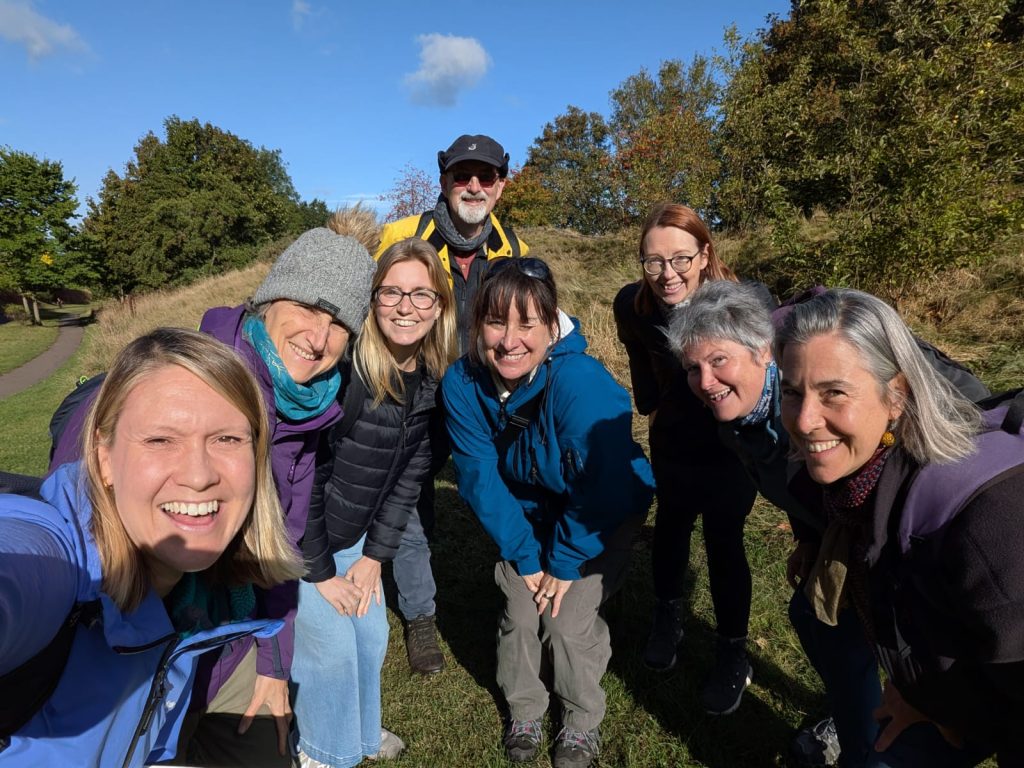
Discussion 1. What does sustainability mean to you?
First we discussed how we were all approaching the subject of sustainability. The intention here was to better understand where we were all coming from. A few themes that came up in this discussion included:
Family and future generations. That this subject feels emotive and urgent because of the imminence of the impact, and the future for our families.
Health & connection to self. Here we discussed the Inner Development Goals, and how, without health, we are not able to play an effective part in tackling these wider issues.
Community. The need for community to tackle these issues, but the fact that community has receded in recent history.
I / We. The need to take care of both ourselves, and our community. They feed one another.
Money. The tension between money driving decisions, and that without money, lots of things are unsustainable. And broader questions around whether money is the root of the problem.
Everything is connected. Climate crisis, nature, biodiversity, social and health inequalities, systemic racism, everything is connected and part of the same thing. We treat them like they are all siloed things.
Guilt. People spoke about feeling guilty daily, trying to make the right choices but not always being able to, and conflict around international travel.
Slowing the pace. The need to slow down at a time when everything seems to be speeding up. Taking time to approach things thoughtfully, and ensure we’re asking the right questions.
What does sustainability mean to you?
Connecting to Nature
Before we got any further, Osbert guided us through a mindfulness exercise – we were invited to tap into our 5 senses to connect with ourselves and the nature around us.
It was a great reminder that the only thing we can truly control is ourselves, and it helped us move from only our heads, and into our bodies and hearts.
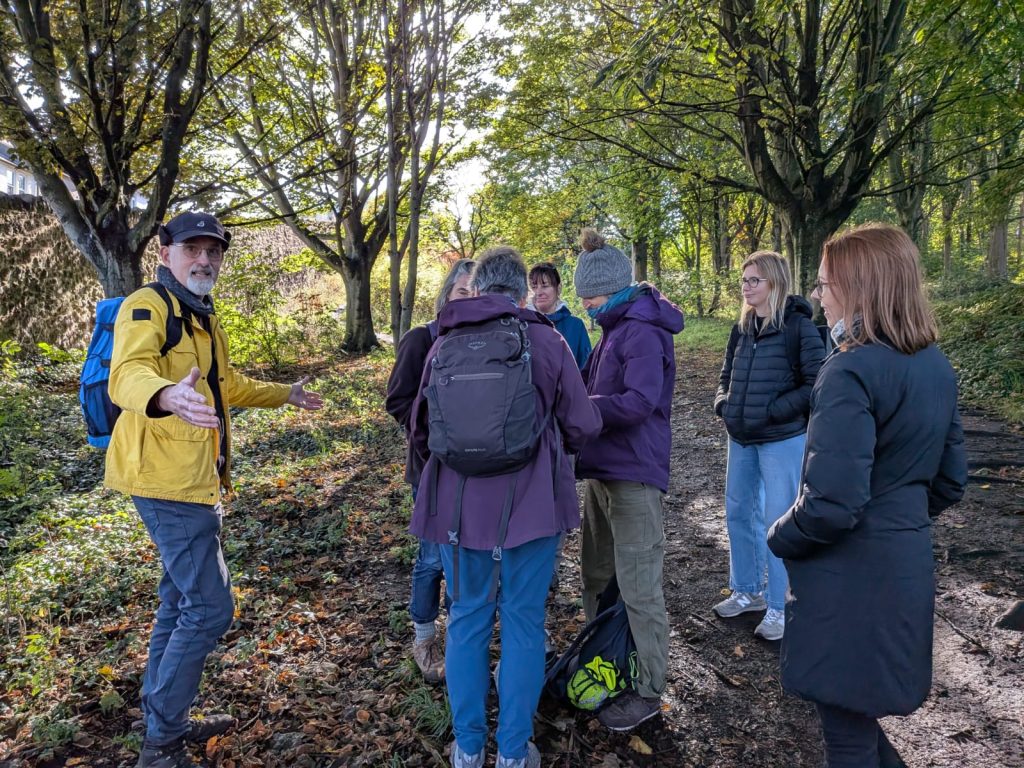
Discussion 2. What questions do you want answered?
Next, we were challenged to articulate the questions we want to find the answers to in relation to sustainability.
Questions that came up across the group included:
“What questions do I need to ask to make a difference?”
“How do I best focus my energy to make the biggest difference?”
“What things could I do that would make the biggest difference?”
“What tools should I be using that are going to reduce my footprint?”
“How do I need to show up, to reassure people around this subject?”
“What imprint do I want to leave?”
What question would you ask, to help you move towards sustainability?
Discussion 3. What can you influence and what can you control?
Osbert offered a useful framework here called the circle of influence from Stephen Covey.
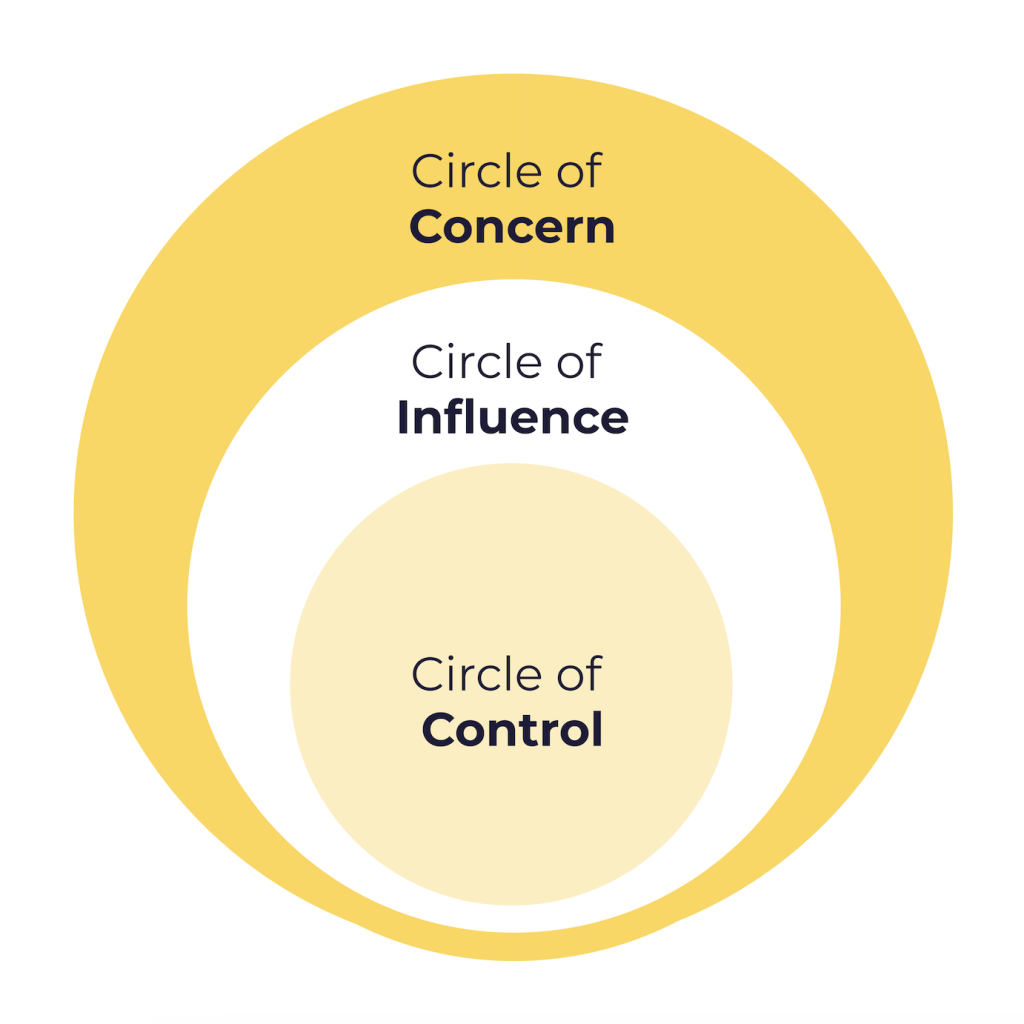
Osbert explained that the smallest inner circle is the things we can control. In relation to sustainability in our work this could be suppliers or tools we choose to use, or clients we choose to work with.
The second (middle) circle is the circle of influence. In relation to sustainability and our work, this could relate to the information we share with our clients, and how we try to influence them towards more sustainable solutions.
The outer circle is the circle of concern – this is stuff we can worry about but that we have very little power over. We all recognised that this outer layer can add significant weight to us day-to-day, but there’s little we can do to address it.
Osbert suggested that focussing our efforts on what we are able to influence and control in our businesses is a way to identify and then begin to take action. This can help prevent us being overwhelmed by the issues we are concerned about, but can’t influence or control.
In relation to sustainability, what can you influence, and what can you control, in your business?
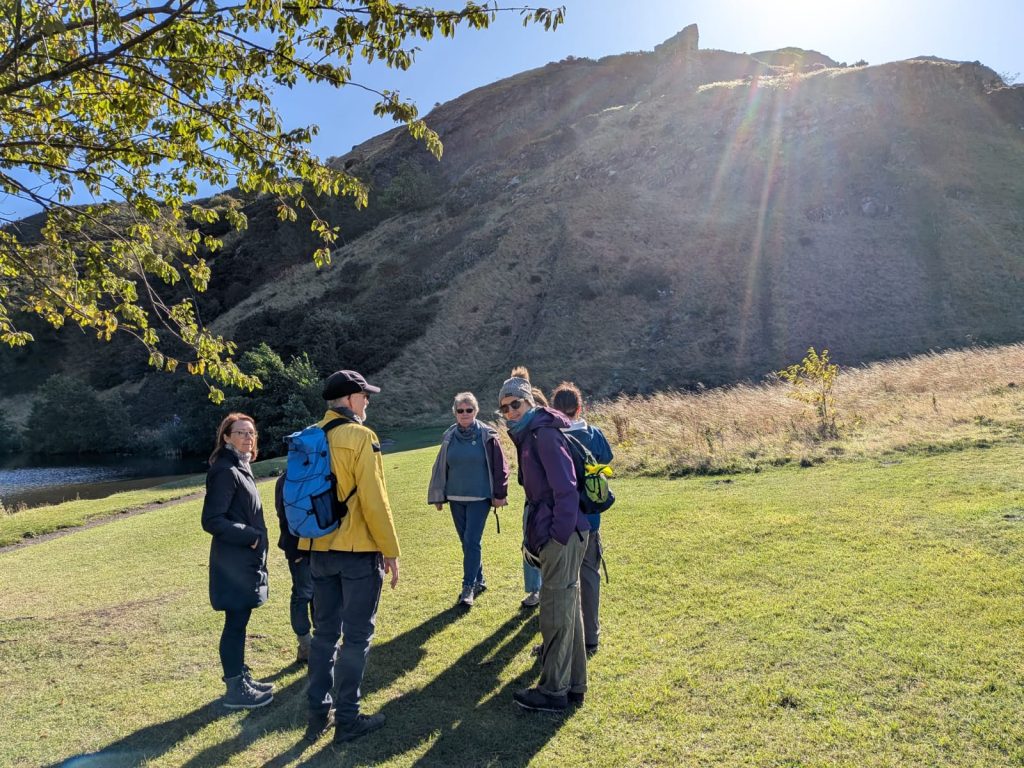
Discussion 4. What is the most impactful ways to apply yourself?
Here, Osbert offered a helpful way of thinking about the different types of business and how they relate to sustainability.
Type 1 – the purpose-driven business. This is a business where the product is sustainability. A few examples of these businesses include:
Cheryl Lessel’s brilliant business Happy Thoughts Squad. Cheryl has created a subscription box to support mental wellbeing and resilience in girls – this is directly impacting their wellbeing. Check out her fantastic write-up of this session here.
Sowing Our Horizons, run by Marie-Amelie Viatte – an organisation focussed on strengthening the local food economy and offsetting emissions from travel.
Woodlands Breathing run by Jeannie Nairn is on a mission to connect people to themselves and the trees, through her beautiful wellbeing walks and practices.
Type 2 – the service-based business – This could be a web design service like Susan Graham’s Embra Digital, or branding design like Karen Bennett Design. Both of these women recognise that the biggest levers for sustainability in their business include WHO they work with (they choose to support clients who are purpose-led), as well as HOW they work (thinking about the ways they can create output with the lowest impact).
Type 3 – the product-based business – Here the biggest sustainability factors are materials / ingredients, manufacturing methods, energy and packaging.
Using the model of influence and control we each took some time to reflect on our most significant environmental impacts, and how we can exert control over them, without getting sucked into minor details.
Where could you focus within your business?
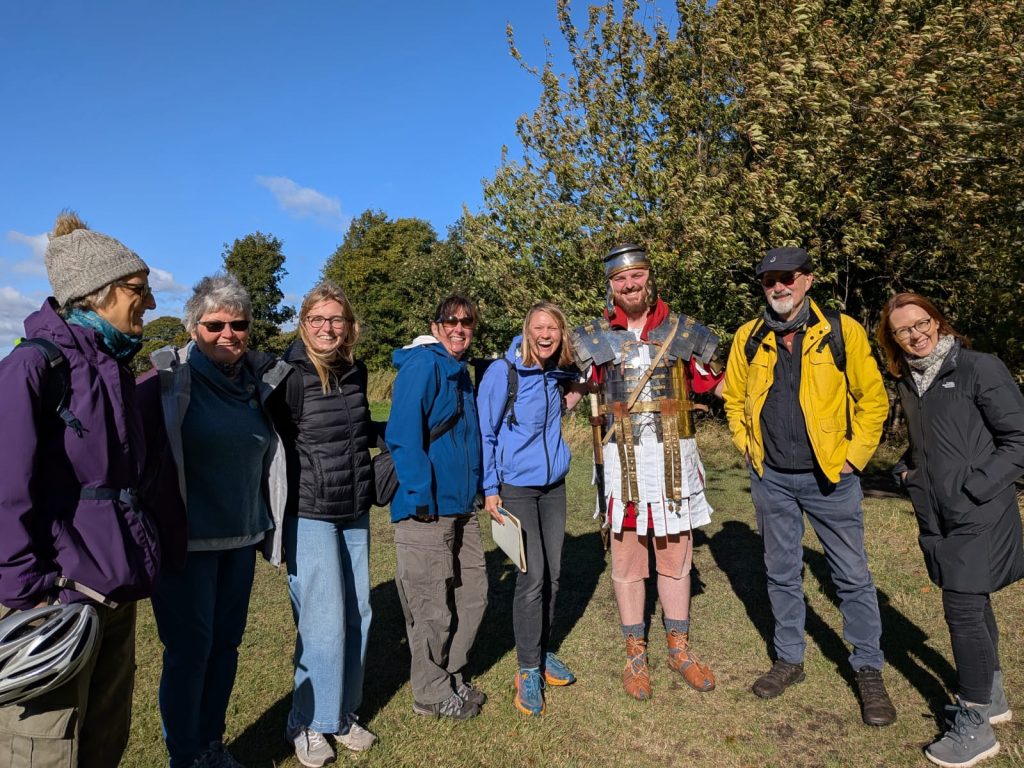
Things we took away from the session…
There was a general recognition amongst the group that kindness is key. That sustainability is a complex topic – we need to be kind to ourselves as we do our best to navigate, and kind to others on their own journeys
We can also control how we give kindness, and create a ripple effect. The power of a smile to change someone’s day should not be underestimated.
Other thoughts people shared included:
“The importance of self-care and community connection”
“The circle of influence, and reducing some of that guilt and encouraging self-acceptance”
“The realisation that what I’m doing IS sustainability, wellbeing and confidence is all part of it”
“The need to explore and expand knowledge on sustainable tools and software”
“The power of open an exploratory conversation around difficult topics”
Thanks to Osbert for guiding us so expertly through this tricky topic. It was an engaging and enlightening session, and we look forward to continuing these discussions at The Outsiders group meet-ups.
As a group, we’ve committed to continuing the conversation in our WhatsApp group, and to crowd sourcing tools that can help us work more sustainably.
And as an added bonus, we caught up with The Outsiders very own Damien Quinn who was dressed as a Roman, showing P5’s what life was like through the ages in Holyrood Park for Historic Environment Scotland.
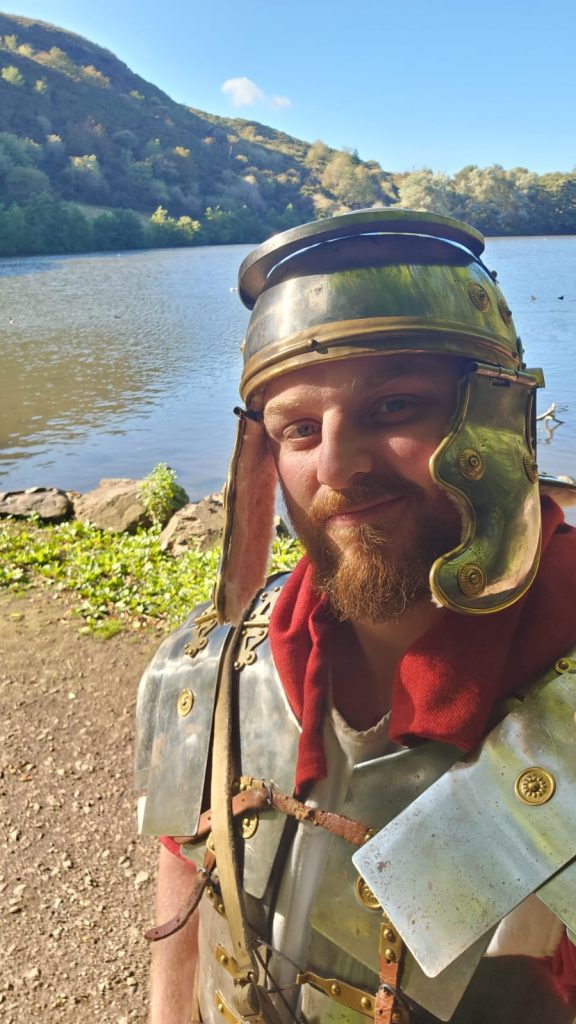
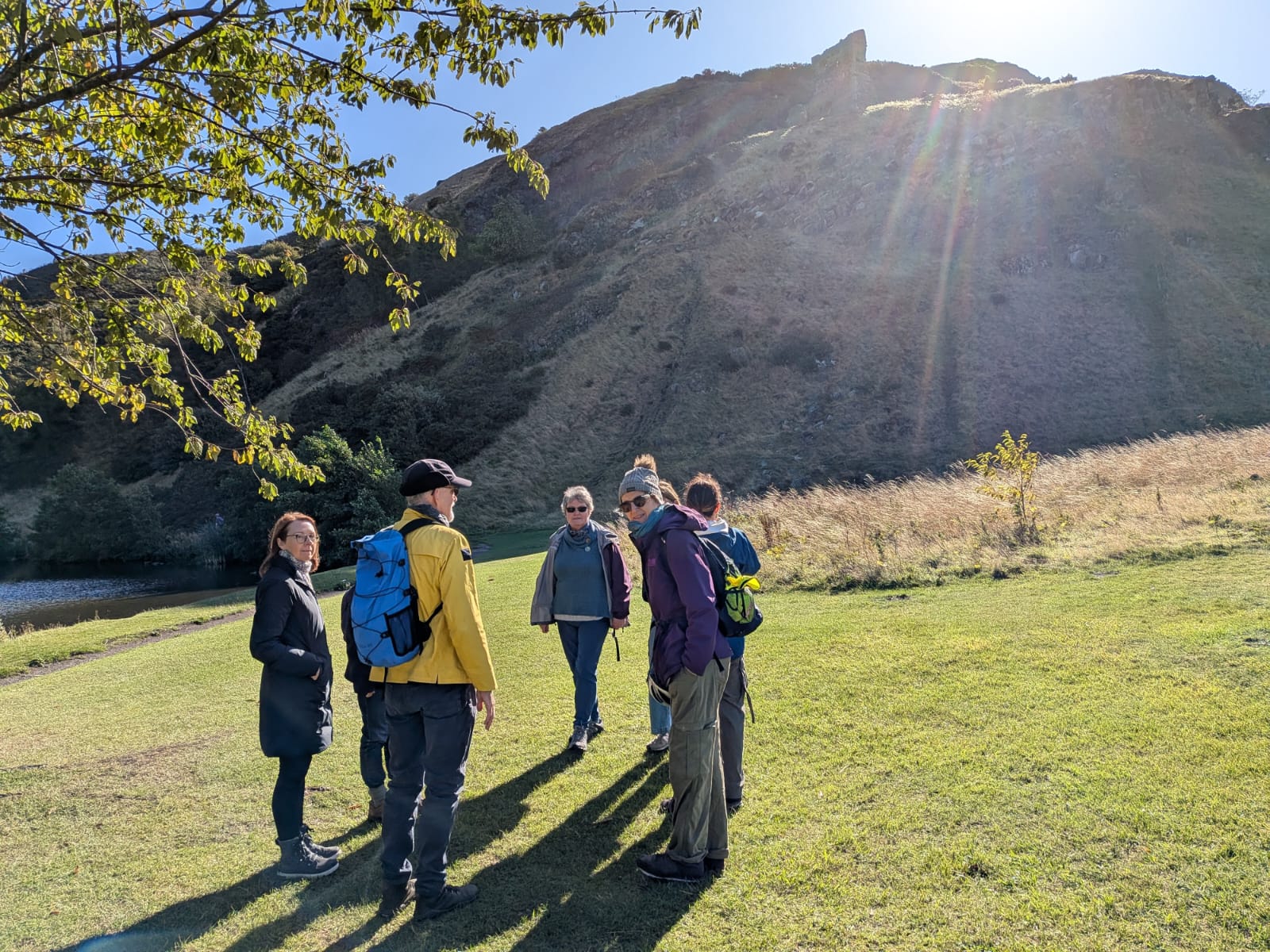
Leave a Reply